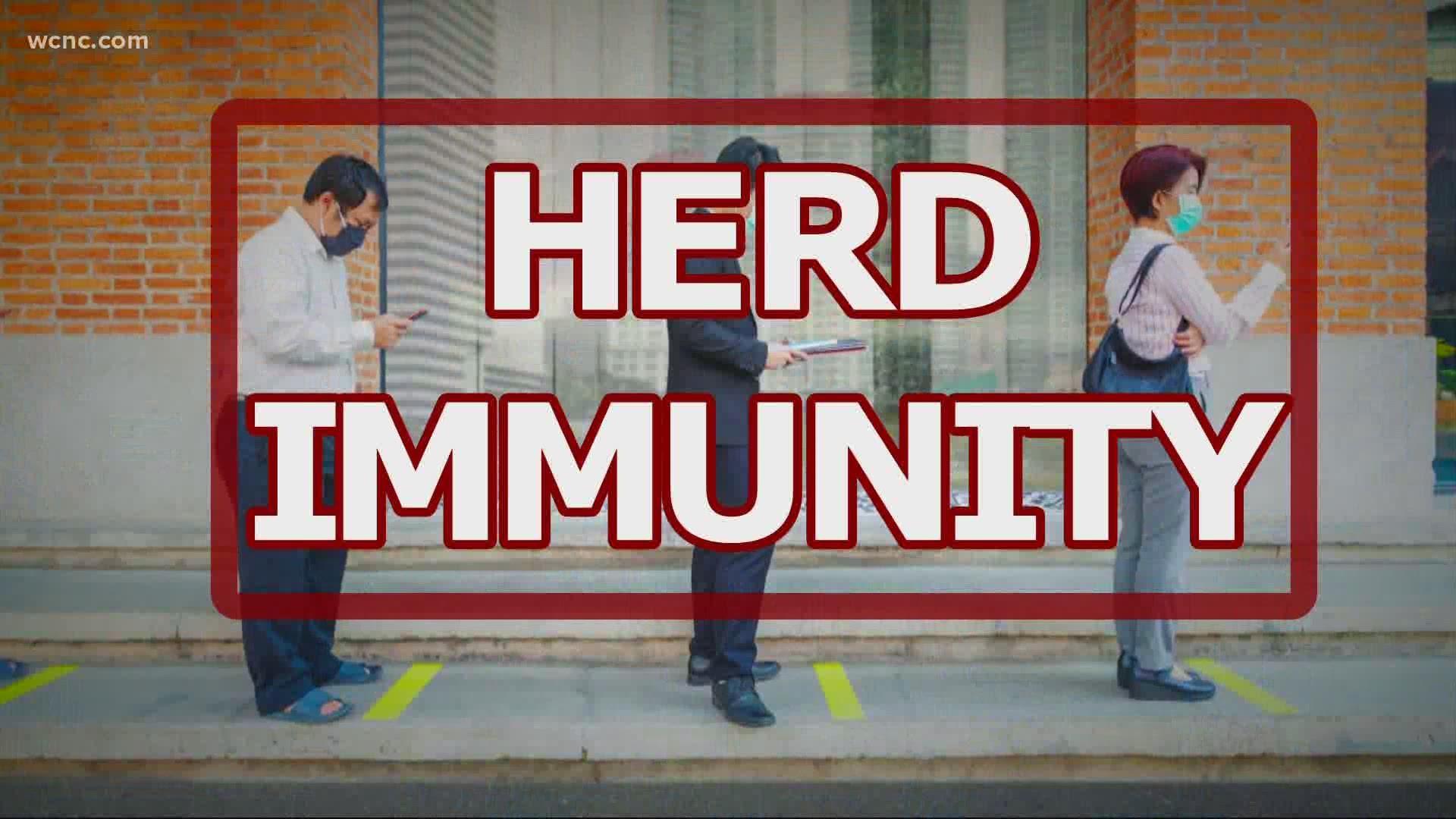CHARLOTTE, N.C. — Distributing the vaccine is a big challenge state and local leaders are facing, but it’s not the only one.
Public confidence is also a huge factor. Whether or not people will actually roll up their sleeves when it comes time.
New data shows in the Carolinas that the COVID-19 vaccine trust isn’t where it needs to be.
To officially get a handle on COVID-19, we need what’s called herd immunity.
To get that, 70 to 90% of Americans will need to get the vaccine, according to infectious disease specialists like Dr. William Schaffner.
"Wherever there is less acceptance, there will still be Covid, making people sick, bringing them to the hospital and causing death," Schaffner said.
To get a better understanding about which parts of the US are on board with the vaccine, and which areas might be more hesitant, Carnegie Melon University’s Delphi lab partnered with Facebook to survey more than 16 million people and counting – asking users if they plan to get the vaccine when it becomes available to them.
The data is updated every day into a vaccine acceptance map.
Statewide, both North and South Carolina average about a 65% acceptance rate, meaning 65% of respondents said they’ll definitely or probably get vaccinated.
In some counties, mostly urban ones, that rate is higher:
The survey shows the vaccine acceptance rate is 78% in Mecklenburg, 77% in Union, and 74% in York.
But other areas are concerningly low.
Of all the counties in the nation, the Carolinas accounted for 3 of the 10 lowest vaccine acceptance rates Thursday.
Sumter South Carolina sat at only 53% acceptance, and Robeson North Carolina was 57%.
Experts said these results are a huge concern as the nation prepares to offer the vaccine on a wider scale.
Harvard infectious disease fellow dr. Stephen Kissler says if people don't actually take it, the longer it takes to reach herd immunity, which gives the virus time to mutate into new variants.
“If we don't achieve that level of immunity in the population, then it'll just continue to spread around," Kissler said.
The Delphi lab is using this data to help the CDC better understand hesitancy, and identify where to perform more targeted education campaigns.
The map shows most areas becoming more confident over time, a step in the right direction, experts say.
“It would really be, I think, bordering on tragic if you had a tool that could save lives and you don't utilize that tool because people are reluctant to get vaccinated," Dr. Anthony Fauci said.

